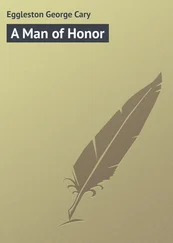George Eggleston - A Rebel's Recollections
Здесь есть возможность читать онлайн «George Eggleston - A Rebel's Recollections» — ознакомительный отрывок электронной книги совершенно бесплатно, а после прочтения отрывка купить полную версию. В некоторых случаях можно слушать аудио, скачать через торрент в формате fb2 и присутствует краткое содержание. Издательство: Иностранный паблик, Жанр: foreign_prose, на английском языке. Описание произведения, (предисловие) а так же отзывы посетителей доступны на портале библиотеки ЛибКат.
- Название:A Rebel's Recollections
- Автор:
- Издательство:Иностранный паблик
- Жанр:
- Год:неизвестен
- ISBN:нет данных
- Рейтинг книги:5 / 5. Голосов: 1
-
Избранное:Добавить в избранное
- Отзывы:
-
Ваша оценка:
- 100
- 1
- 2
- 3
- 4
- 5
A Rebel's Recollections: краткое содержание, описание и аннотация
Предлагаем к чтению аннотацию, описание, краткое содержание или предисловие (зависит от того, что написал сам автор книги «A Rebel's Recollections»). Если вы не нашли необходимую информацию о книге — напишите в комментариях, мы постараемся отыскать её.
A Rebel's Recollections — читать онлайн ознакомительный отрывок
Ниже представлен текст книги, разбитый по страницам. Система сохранения места последней прочитанной страницы, позволяет с удобством читать онлайн бесплатно книгу «A Rebel's Recollections», без необходимости каждый раз заново искать на чём Вы остановились. Поставьте закладку, и сможете в любой момент перейти на страницу, на которой закончили чтение.
Интервал:
Закладка:
Not in every house were the servants so well trained as Henry, but what they lacked in skill they fully made up in numbers, and in hardly anything else was the extravagance of the Virginians so manifest as in their wastefulness of labor. On nearly every plantation there were ten or twelve able-bodied men and women employed about the house, doing the work which two or three ought to have done, and might have done; and in addition to this there were usually a dozen or a score of others with merely nominal duties or no duties at all. But it was useless to urge their master to send any of them to the field, and idle to show him that the addition which might thus be made to the force of productive laborers would so increase his revenue as to acquit him of debt within a few years. He did not much care to be free of debt for one thing, and he liked to have plenty of servants always within call. As his dinner table bore every day food enough for a battalion, so his nature demanded the presence of half a dozen servitors whenever one was wanted. Indeed, these people usually summoned servants in squads, calling three or four to take one guest's horse to the stable or to bring one pitcher of ice-water.
And yet I should do the Virginians great injustice were I to leave the impression that they were lazy. With abundant possessions, superabundant household help and slave labor, they had a good deal of leisure, but they were nevertheless very industrious people in their way. It was no light undertaking to manage a great plantation and at the same time fulfil the large measure of duties to friends and neighbors which custom imposed. One must visit and receive visitors, and must go to court every month, and to all planters' meetings. Besides this there was a certain amount of fox hunting and squirrel and bird and turkey shooting and fishing to be done, from which it was really very difficult to escape with any credit to oneself. On the whole, the time of the planters was pretty fully occupied. The women had household duties, and these included the cutting and making of clothes for all the negroes on the plantation, a heavy task which might as well have been done by the negro seamstresses, except that such was not the custom. Fair women who kept dressmakers for themselves worked day after day on coarse cloths, manufacturing coats and trousers for the field hands. They did a great deal of embroidery and worsted work too, and personally instructed negro girls in the use of the needle and scissors. All this, with their necessary visiting and entertaining, and their daily attendance upon the sick negroes, whom they always visited and cared for in person, served to make the Virginian women about the busiest women I have ever known. Even Sunday brought them little rest, for, in addition to other duties on that day, each of them spent some hours at the "quarters" holding a Sunday-school.
Nevertheless the Virginians had a good deal of leisure on their hands, and their command of time was a very important agent, I should say, in the formation of their characters as individuals, and as a people. It bred habits of outdoor exercise, which gave the young men stalwart frames and robust constitutions. It gave form to their social life. Above all, it made reading men and students of many, though their reading and their study were of a somewhat peculiar kind. They were all Latinists, inasmuch as Latin formed the staple of their ordinary school course. It was begun early and continued to the end, and even in after life very many planters were in the habit of reading their Virgil and their Horace and their Ovid as an amusement, so that it came to be assumed, quite as a matter of course, that every gentleman with any pretension to culture could read Latin easily, and quote Horace and Juvenal from memory.
But they read English literature still more largely, and in no part of the country, except in distinctly literary centres like Cambridge or Concord, are really rich household libraries so common a possession, I think, as they were among the best classes of Virginian planters. Let us open the old glass doors and see what books the Virginians read. The libraries in the old houses were the growth of many generations, begun perhaps by the English cadet who founded the family on this side of the water in the middle of the seventeenth century, and added to little by little from that day to this. They were especially rich in the English classics, in early editions with long s's and looped ct's , but sadly deficient in the literature of the present. In one of them, I remember, I found nearly everything from Chaucer to Byron, and comparatively little that was later. From Pope to Southey it furnished a pretty complete geologic section of English literature, and from internal evidence I conclude that when the founder of the family and the library first took up his residence in the Old Dominion, Swift was still a contributor to the Gentleman's Magazine, and Pope was a poet not many years dead.
There was a copy of "Tom Jones," and another of "Joseph Andrews," printed in Fielding's own time. The "Spectator" was there, not in the shape of a reprint, but the original papers, rudely bound, a treasure brought from England, doubtless, by the immigrant. Richardson, Smollett, Swift, and the rest were present in contemporary editions; the poets and essayists, pretty much all of them, in quaint old volumes; Johnson's "Lives of the Poets;" Sheridan's plays, stitched; Burke's works; Scott's novels in force, just as they came, one after another, from the press of the Edinburgh publishers; Miss Edgeworth's moralities elbowing Mrs. Aphra Behn's strongly tainted romances; Miss Burney's "Evelina," which was so "proper" that all the young ladies used to read it, but so dull that nobody ever opens it nowadays; and scores of other old "new books," which I have no room to catalogue here, even if I could remember them all.
Byron appeared, not as a whole, but in separate volumes, bought as each was published. Even the poor little "Hours of Idleness" was there, ordered from across the sea, doubtless, in consequence of the savage treatment it received at the hands of the Edinburgh Review, bound volumes of which were on the shelves below. There was no copy of "English Bards and Scotch Reviewers," but as nearly all the rest of Byron's poems were there in original editions, it seems probable that the satire also had once held a place in the library. It had been read to pieces, perhaps, or borrowed and never returned.
There were histories of all kinds, and collected editions of standard works in plenty, covering a wide field of law, politics, theology, and what not.
Of strictly modern books the assortment was comparatively meagre. Macaulay's "Miscellanies," Motley's "Dutch Republic," Prescott's "Mexico," "Peru," etc.; stray volumes of Dickens, Thackeray, Bulwer, and Lever; Kennedy's "Swallow Barn," Cooke's "Virginia Comedians," half a dozen volumes of Irving, and a few others made up the list.
Of modern poetry there was not a line, and in this, as in other respects, the old library – burned during the war – fairly represented the literary tastes and reading habits of the Virginians in general. They read little or no recent poetry and not much recent prose. I think this was not so much the result of prejudice as of education. The schools in Virginia were excellent ones of their kind, but their system was that of a century ago. They gave attention chiefly to "the humanities" and logic, and the education of a Virginian gentleman resembled that of an Englishman of the last century far more closely than that of any modern American. The writers of the present naturally address themselves to men of to-day, and this is precisely what the Virginians were not, wherefore modern literature was not at all a thing to their taste.
To all this there were of course exceptions. I have known some Virginians who appreciated Tennyson, enjoyed Longfellow and Lowell, and understood Browning; just as I have known a few who affected a modern pronunciation of the letter "a" in such words as "master," "basket," "glass," and "grass."
Читать дальшеИнтервал:
Закладка:
Похожие книги на «A Rebel's Recollections»
Представляем Вашему вниманию похожие книги на «A Rebel's Recollections» списком для выбора. Мы отобрали схожую по названию и смыслу литературу в надежде предоставить читателям больше вариантов отыскать новые, интересные, ещё непрочитанные произведения.
Обсуждение, отзывы о книге «A Rebel's Recollections» и просто собственные мнения читателей. Оставьте ваши комментарии, напишите, что Вы думаете о произведении, его смысле или главных героях. Укажите что конкретно понравилось, а что нет, и почему Вы так считаете.












